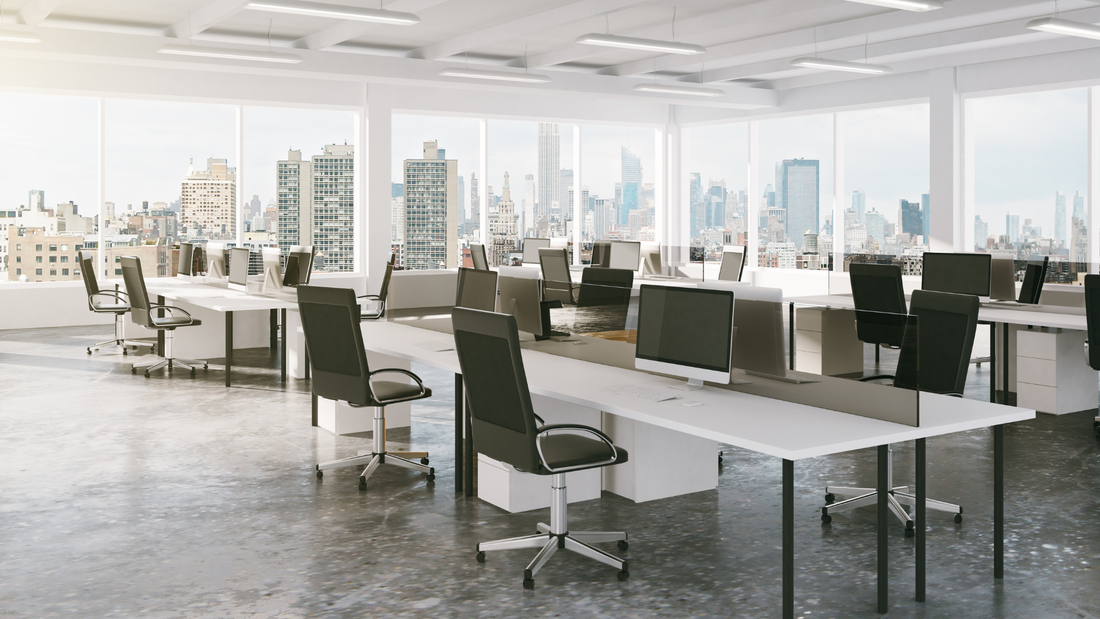|
Do you remember when companies said it would be “impossible” for most of their workforce to work from home? That it was “impractical” to have so many people out of the watchful eye of the office? Seems like a whole other world ago. Working somewhere other than the office was previously said by many companies to be an unattainable way of working – and surprise surprise, that view was suddenly overturned almost overnight. Now, most of us have probably spent more time at home in the last 18 months than we have in years. With people heading back into offices, the easing of restrictions and the rollout of vaccines, things seem to be returning to some sort of pre-pandemic "normal"...or do they? From reading surveys, articles and posts from connections, it seems lots of people have anxieties about the return to "normal", whether that's the thought of discussing working preferences with their managers, adjusting to being back around other people, or readjusting to the office environment as a whole. There's natural hesitation (I mean, let's face it, we've all been in our home offices or on the sofa for ages, in our own homes, with our own comforts and perhaps more working freedom than we're used to) and so far, it doesn't seem like offices have been quite as busy as our government seemed to hope. So, what does this mean for the future of the office? How has the pandemic, and the changes in human behaviour that have come about as a result, impacted its function, purpose and meaning? Well, we certainly don’t have any answers, but here’s some things to consider…and maybe more questions to be asked than answered! Forward planningWith reworked spaces and wildly differing working preferences now coming to the fore, will there be any forward planning on how the working weeks are structured? Especially within certain teams, for example, it sounds likely that schedules could collide, and important meetings/decisions/updates purposefully arranged for when most – or all – are in the office. Which leads us nicely on to… MeetingsAh, meetings. Some of the organisations we work with are obsessed with meetings – meetings about meetings that end with a meeting about setting up the next meeting. Will more flexible working policies continue to change how we prioritise what we actually need to meet about? Will we end up with endless Zoom calls instead? Or will we finally realise that some things we used to meet about could actually be solved in a phone call? Trust and presenteeismI don’t want to add in a bit of a downer, but what about levels of trust? There was undoubtedly an initial hesitation from organisations to let people work from home (forced Zoom check-ins and update meetings on how much work you’ve done, anyone?), which has since become the working norm in the last year. How does this then translate into a very hybrid working model, where individuals have their own preferences and ways of working? I certainly don’t know the answer to this, but I wonder if there will be a difference in attitude towards those who work from home more often, and those who choose to work in the office again. From those in positions of power, as well as from team members…and even how we view ourselves. We could even see a bit of an arms race taking place: “Yeah, I’m going back into the office for two days a week…oh, Dave is going in three days a week…hold on, you’re in for 4? Maybe I should readjust…or just go back in full-time…” A new meaningIf people are theoretically in their offices less, what becomes of the vacant (or empty) spaces when people aren’t using them? One of our clients turned their offices into accommodation for critical and emergency staff during lockdown, but would or could that continue going forward? It certainly seems like quite a few businesses are re-evaluating why they need an office space, and what that office space could be used for in order to make it worth the investment – and to get the most out of it for their people. Some of the organisations we’ve spoken to have been thinking about using their larger office buildings to focus primarily on collaboration – with lots of the work able to be completed independently and from home (with check-ins and video calls as necessary), their spaces will concentrate on getting people together. Whether that’s for team briefings, strategy updates, making decisions or just being able to spend time together as a team, it’s a far cry from office cubicles and keeping your head down. Workplace cultureIf we’re looking at the possibilities of office spaces being focused on collaboration, how will this shift team dynamics and the overall workplace culture as a whole? With the huge changes that have happened in the last 18 months, and a great sense of us lacking actual human interaction (and Zoom not being a great replacement), could it be that we embrace the office environment more than ever? Now, I’m not saying that’s for everyone – there are lots of anxieties that come with it – but from our recent conversations, people are looking forward to being back together again in person. Perhaps we’ll see people using offices as they were meant to be - as a place to interact, not a place to sit in silence near each other, sending emails back and forth rather than getting up and walking across the room… What do you think?When talking to people about what they thought of returning to the workplace, it’s no surprise that opinions varied wildly with different industries, different roles, ages, and sizes of companies. Nobody really knows how things will continue to evolve in the coming months – all we do know is that things are different, working practices have changed, and that flexibility is (hopefully) here to stay.
What’s your experience? How have things changed for you – and how do you see the future of the workplace in a post-pandemic world?
0 Comments
Your comment will be posted after it is approved.
Leave a Reply. |
AuthorColour; Noun (Vicky Holding and Howard Karloff) Archives
November 2022
Categories |


